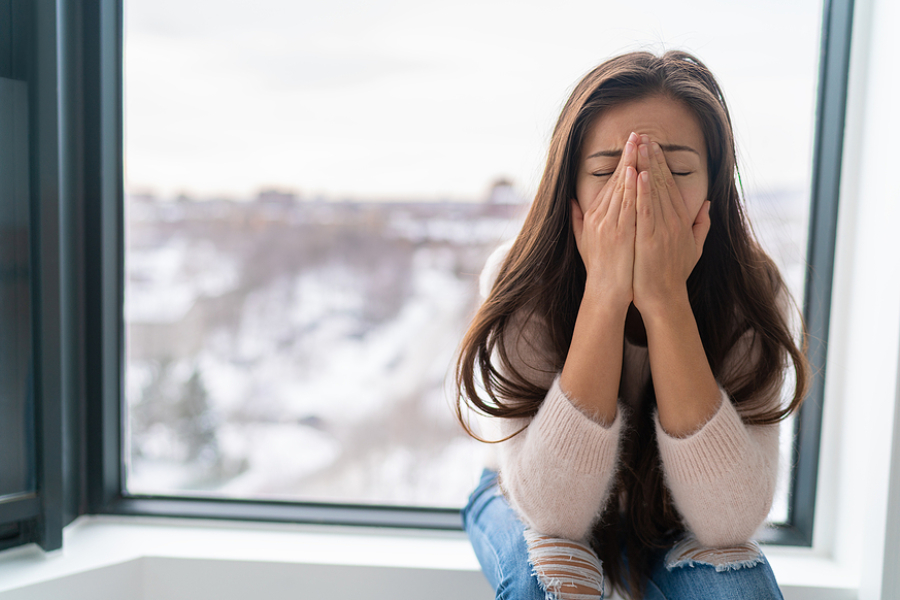The terms “anxiety attacks” and “panic attack” are often used interchangeably. However, while they share several common symptoms, anxiety and panic attacks are actually two very different conditions.
Clinical differences
One of the fundamental distinctions between an anxiety and panic attack is the intensity and duration of which the symptoms are felt. Panic attacks typically last for approximately 10 to 20 minutes on average, whereas an anxiety attack may persist long-term.
Panic attacks are typically associated with panic or psychiatric disorders and can be expected or unexpected. Unexpected panic attacks happen suddenly and often with no trigger. Individuals experiencing a panic attack are overwhelmed by an intense feeling of fear and discomfort.
On the other hand, the term “anxiety” is an umbrella term for various anxiety disorders such as social anxiety disorder, obsessive-compulsive disorder and post-traumatic stress disorders. An individual suffering from an anxiety attack will experience worry and nervousness. However, this feeling is not as intense or extreme as one would experience with a panic attack.
Differences in symptoms
While there are similarities between anxiety and panic attacks, the differences between these two conditions are best highlighted by comparing the symptoms.
Physical symptoms such as an accelerated heart rate, dizziness and chills are some examples of the similarities between anxiety and panic attacks. However, these physical symptoms are often much more intense than that of an anxiety attack as the body’s “fight or flight” response takes over. Panic attacks also come with serious mental symptoms such as derealisation, depersonalisation, fear of losing control, and even the fear of dying.
The symptoms of an anxiety attack are often persistent and long-lasting. Thus, it is common for those suffering from an anxiety attack to experience disturbed sleep, restlessness and difficulty focusing on their tasks. The effects of anxiety may sometimes be affecting an individual subconsciously as they go about their day. Contrastingly, panic attacks involve disruptive and intense symptoms.
Treatment for anxiety and panic
Whether you are struggling with anxiety or panic attacks, treatment is available to help you cope. Treatment can be in the form of self-help techniques, medications or professional counselling and psychotherapy.
1. Home Remedies
Practising mindfulness is an effective self-help technique that can help alleviate symptoms of anxiety and panic attacks. Mindfulness is a technique that helps an individual focus on the present. Breathing exercises and relaxation techniques such as aromatherapy and muscle relaxation are also effective ways to calm down when you are experiencing symptoms.
2. Medications
Medications such as antidepressants may be prescribed to you by your doctor. However, they are often a short-term remedy to assist in minimising your symptoms whilst you work on long-term strategies
3. Counselling and psychotherapy
Psychotherapy is an in-depth treatment that allows you to gain a better understanding of your symptoms, resolve past hurts and develop techniques to resolve them. Professional counselling and psychotherapy facilitates your personal growth by allowing you to gain a clearer perspective of your issues.
Conclusion
When left untreated, anxiety and panic attacks can cause disruptions to your everyday life. If you are experiencing anxiety or panic attacks and would like to seek help, we are committed to working with you for your recovery.
Here at Emotionally Great, we offer counselling services for anxiety, so you can overcome and conquer anxiety-related issues. These issues can be complicated to completely treat on your own as it takes a diverse set of therapy strategies to tackle the numerous factors that cause anxiety in the first place. We adopt a repertoire of psychotherapy techniques such as cognitive behavioural therapy, schema therapy, visualisation and more.
The sooner you begin therapy for anxiety, the sooner you would be able to get well. Book an appointment for a session with our qualified professional psychotherapist today.

